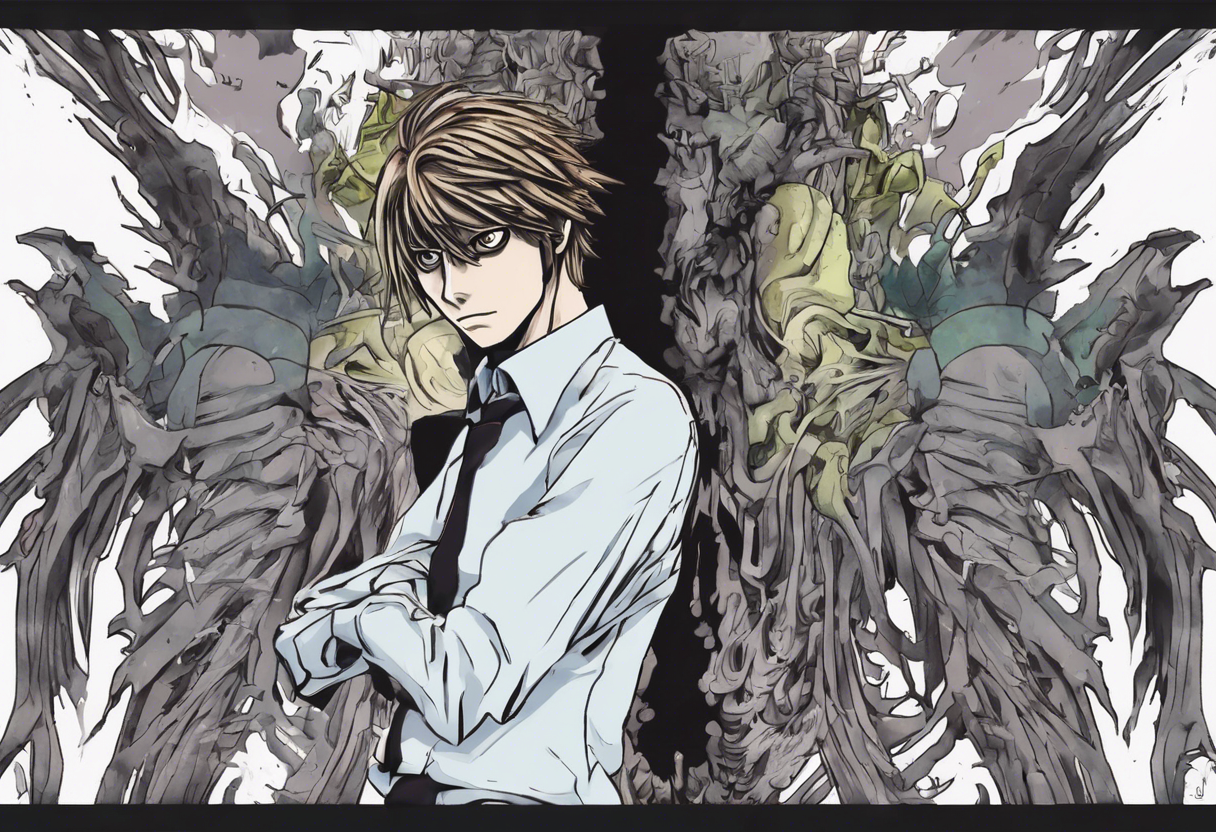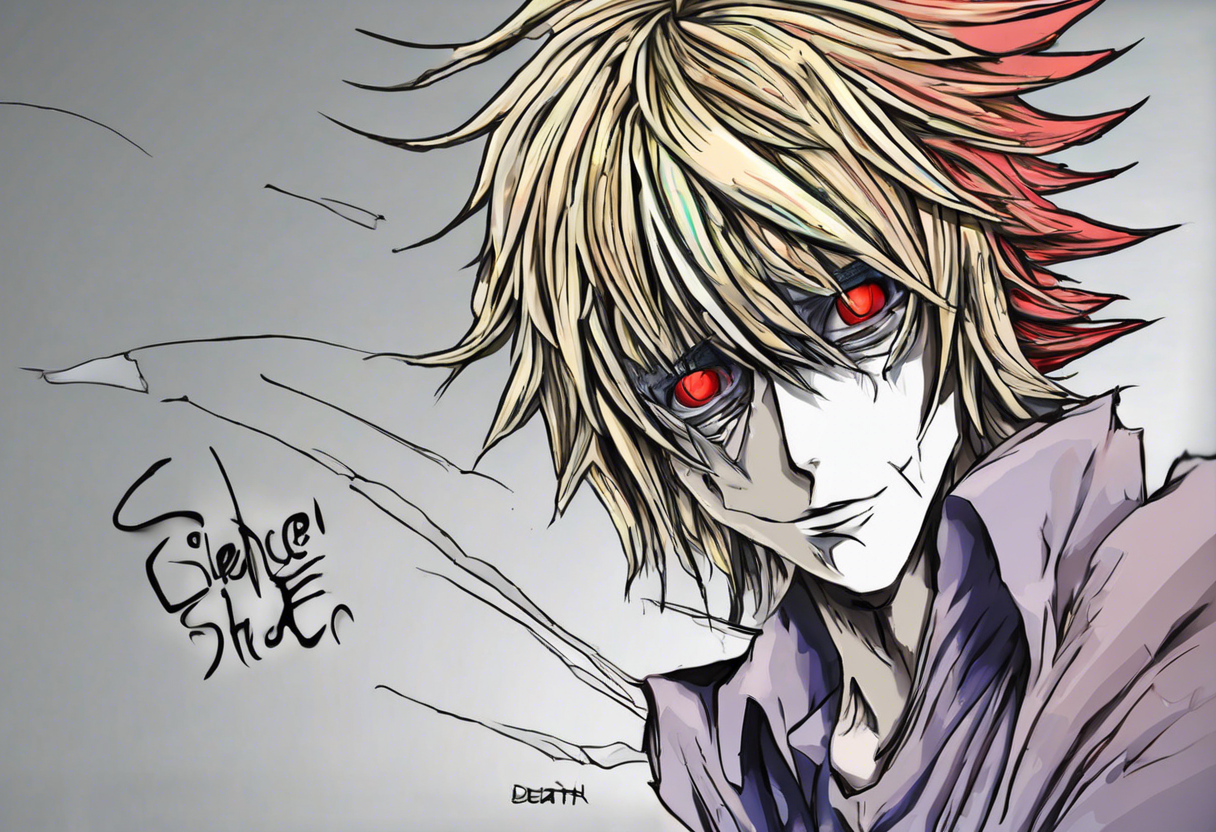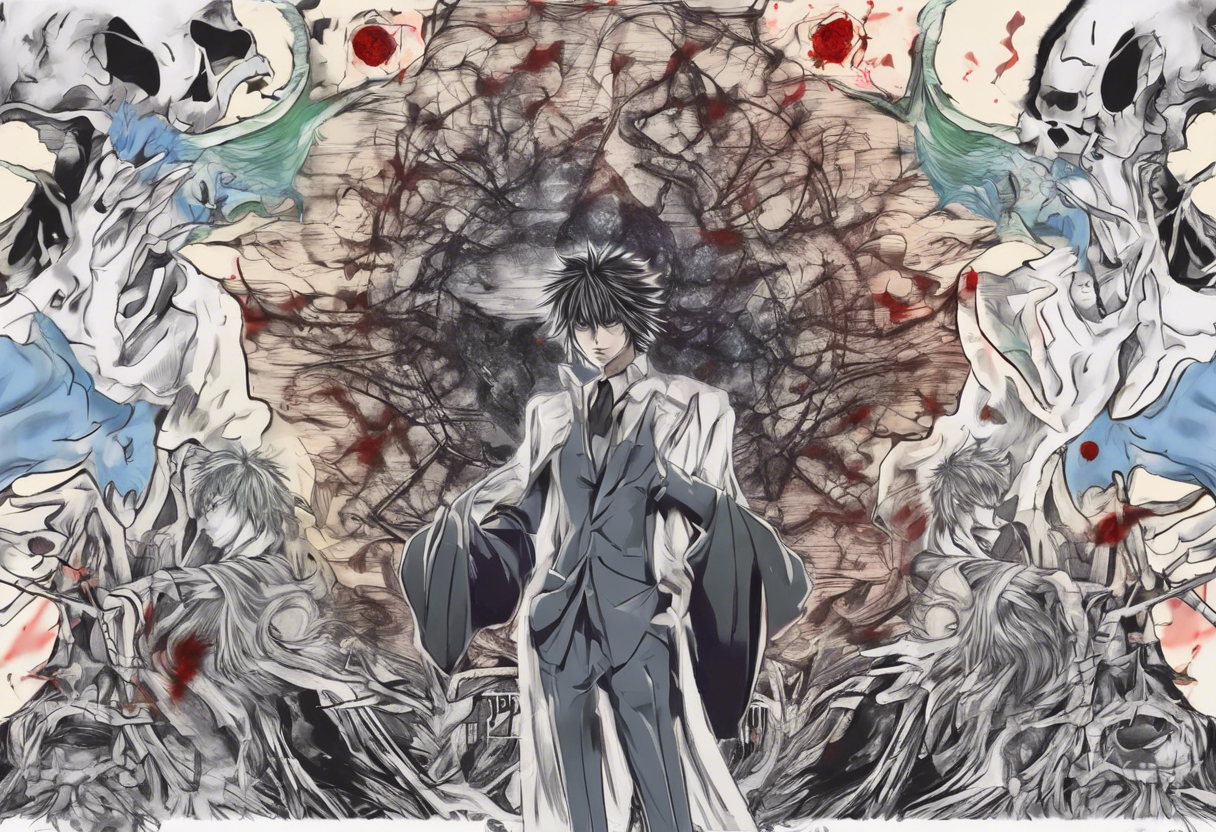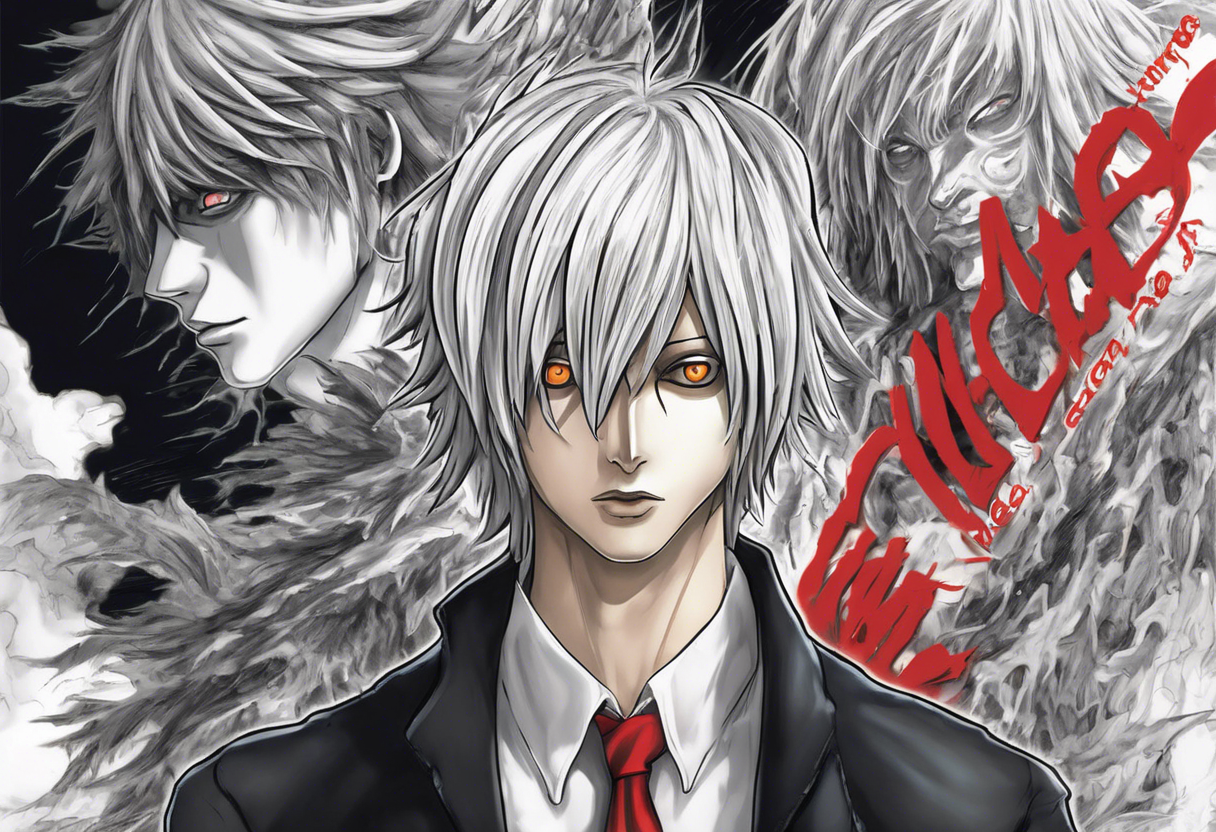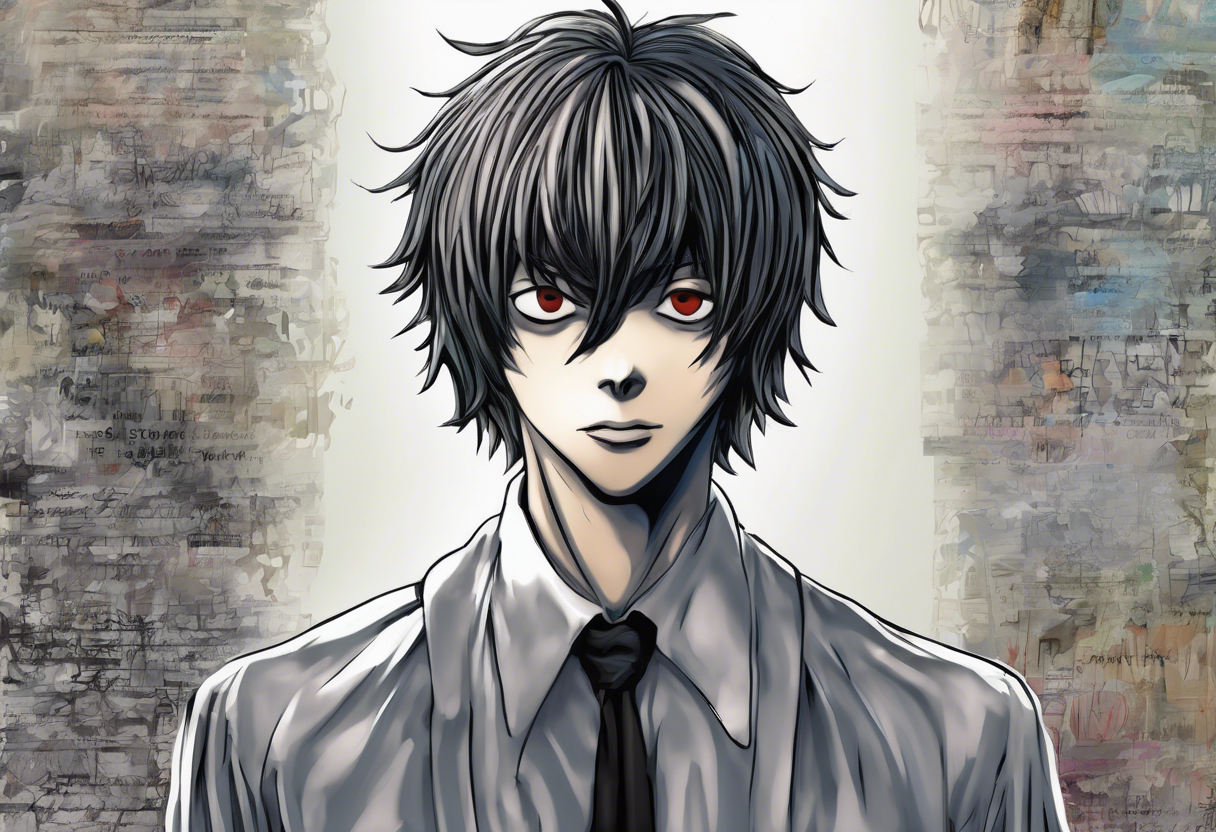Contents
Introduction
"Silence" is the 25th episode of the anime series Death Note, a psychological thriller based on the manga of the same name written by Tsugumi Ohba and illustrated by Takeshi Obata. The anime adaptation, directed by Tetsurō Araki and animated by Madhouse, premiered on Nippon TV on October 4, 2006, and concluded on June 27, 2007, with a total of 37 episodes.
The production of Death Note involved a collaborative effort between several key creative figures. Tetsurō Araki, the director, was instrumental in conveying the intriguing aspects of the series, focusing on the thoughts and actions of the main character, Light Yagami, as much as possible [2]. Toshiki Inoue, the series organizer, played a crucial role in adapting the manga’s plot into the anime, tweaking the chronology and incorporating flashbacks to enhance the narrative tension.
"Silence" stands out within the Death Note series for its intense plot developments and emotional depth. This episode marks a significant turning point in the story, as it delves into the complexities of Light’s plan and the moral dilemmas faced by the characters.
Plot Summary
In "Silence," the narrative revolves around the aftermath of Higuchi’s capture and the revelation of the Death Note’s existence to the investigation team. The episode begins with Light Yagami regaining control of the Death Note, a moment that has been anticipated since he lost it earlier in the series. This regain is facilitated by Light’s clever manipulation of events, including his use of Misa Amane and the shinigami Rem to ensure his safety and the continuation of his plan to create a new world without crime.
A pivotal scene in this episode involves the death of Higuchi, one of the members of the Yotsuba Group who had been using the Death Note to kill criminals. Light writes Higuchi’s name in the Death Note, solidifying his position as Kira once again. This act is followed by a series of intense moments, including the acknowledgment by L (Ryuzaki) that shinigamis are real, which significantly alters the dynamics of the investigation.
The episode also explores the moral and legal implications of using the Death Note. The characters discuss the feasibility of legally convicting and punishing someone who uses the Death Note to commit mass homicide, highlighting the ethical complexities and the lack of a humane solution to this extraordinary situation [1][3].
Themes and Symbolism
"Silence" delves into several central themes that are characteristic of the Death Note series. One of the most prominent themes is the concept of justice and morality. Light’s actions are driven by his belief in creating a utopian society without crime, but this goal is achieved through morally questionable means. The episode raises questions about the nature of justice and whether the ends justify the means.
Another significant theme is the power of manipulation and deception. Light’s ability to outmaneuver his opponents and manipulate those around him is a hallmark of his character. This theme is exemplified through his interactions with Misa and the investigation team, where he uses his intelligence and strategic thinking to maintain his advantage.
The symbolic element of the Death Note itself is also noteworthy. The notebook represents absolute power and the ability to play god, which is a recurring motif throughout the series. The rules of the Death Note, including the fake rules created by Light to mislead others, add a layer of complexity to the narrative, highlighting the dangers of unchecked power and the consequences of playing with life and death [1][3].
Cultural Impact
The Death Note series, including the episode "Silence," has had a significant cultural impact since its release. The anime was widely acclaimed for its intricate plot, deep characters, and philosophical themes, which resonated with audiences globally. The series was one of the first anime properties to be made legally available in the United States for download while it was still airing in Japan, marking a significant milestone in the distribution of anime content [2].
The cultural significance of Death Note extends beyond its initial release. It has influenced numerous other anime and manga series, and its themes and characters have become part of popular culture. The series has been referenced in various forms of media, including films, TV shows, and music, demonstrating its enduring influence on contemporary culture.
Critical Reception
"Silence" and the Death Note series as a whole received critical acclaim upon their release. Critics praised the series for its engaging storyline, well-developed characters, and the moral dilemmas it presented. The direction by Tetsurō Araki and the animation by Madhouse were also commended for their quality and contribution to the overall tension and suspense of the series.
However, the series also faced some criticism and controversy. Some viewers found the pacing and complexity of the plot challenging, while others debated the moral implications of Light’s actions and the series’ portrayal of justice. Despite these differing interpretations, Death Note remains highly regarded for its intellectual depth and engaging narrative.
In subsequent years, Death Note has continued to be celebrated for its influence on the anime genre. It is often cited as one of the best anime series of all time, and its themes and characters continue to be discussed and analyzed by fans and critics alike.
Legacy
The legacy of "Silence" and the Death Note series is profound. The series has inspired a new generation of filmmakers, writers, and artists, influencing the direction of psychological thrillers and anime in general. The complex characters, intricate plot, and philosophical themes have set a high standard for storytelling in the anime medium.
Death Note continues to be relevant today, with its themes of justice, morality, and the dangers of unchecked power remaining timely and thought-provoking. The series has also spawned various adaptations, including live-action films and stage productions, further cementing its place in popular culture.
In conclusion, "Silence" is a pivotal episode in the Death Note series, marking a significant turning point in the narrative and exploring deep themes that resonate with audiences. Its impact on anime and popular culture is undeniable, and it continues to be celebrated for its intellectual depth and engaging storytelling.

